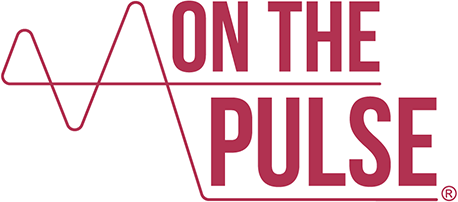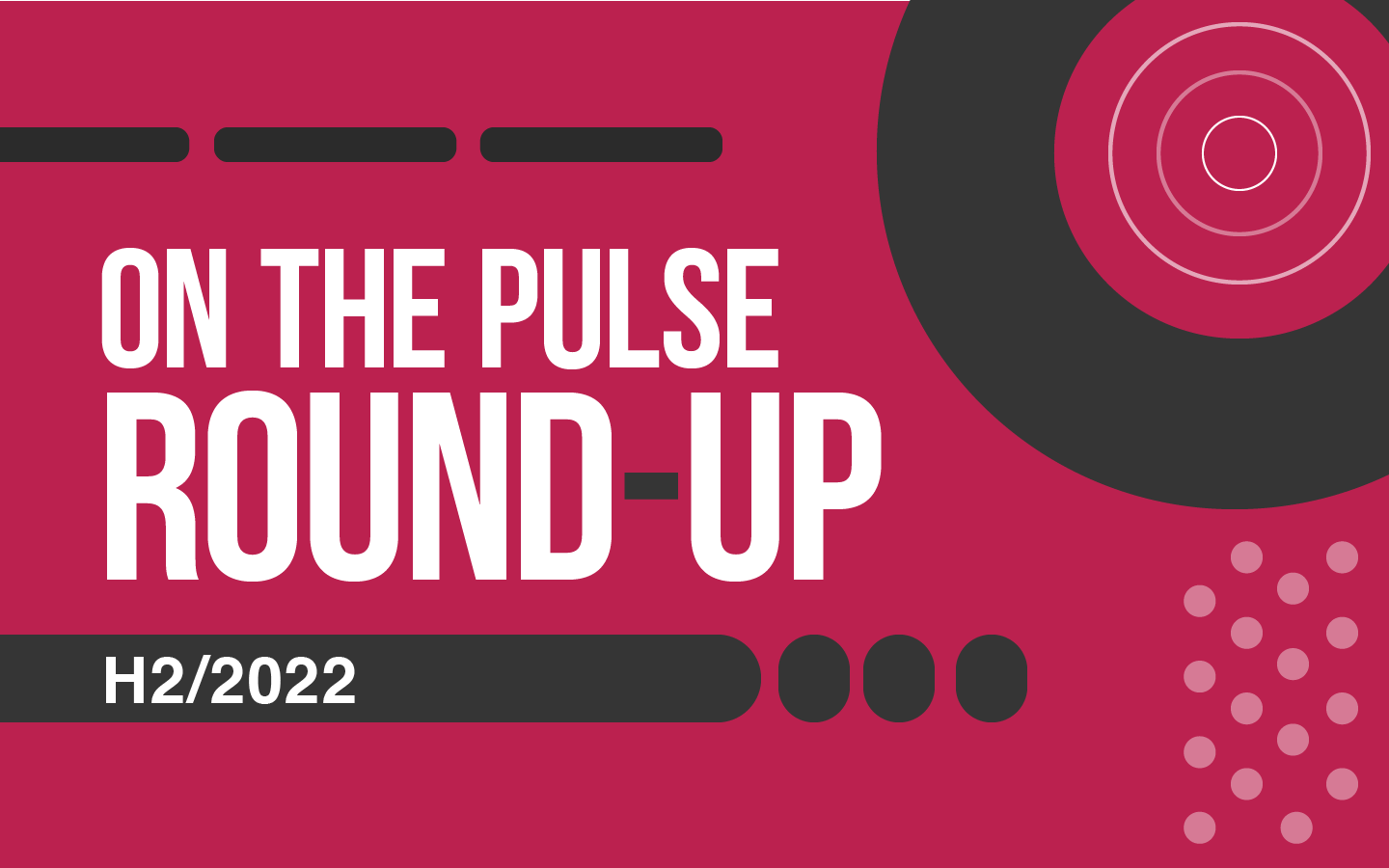It’s been a busy second half of 2022 at On The Pulse HQ. To close out the year, here’s a round-up of some of our key rare disease community engagement highlights…
Bloodstream Media’s ‘Global Hemophilia Report’ podcast
![]() In June, we announced a new partnership with Believe Limited, an award-winning boutique content production agency based in Los Angeles, US, to script and host the Global Hemophilia Report (GHR); part of the Bloodstream Media podcast network.
In June, we announced a new partnership with Believe Limited, an award-winning boutique content production agency based in Los Angeles, US, to script and host the Global Hemophilia Report (GHR); part of the Bloodstream Media podcast network.
The GHR is a monthly audio journey through the foundational science and drug discoveries driving haemophilia research today. Between June and October, we supported the release of four compelling episodes focussing on young people and mental health, research priorities in women, girls and those with the potential to menstruate, haemophilia B and the story of Prince Alexei as well as a mid-point series conversation with Dr. Donna DiMichele, Senior Advisor to the GHR and Patrick Lynch, Founder and CEO of Believe Limited.
To listen to each of the episodes and more, click here.
Partners4Access’ ‘Let’s Talk Rare’ Podcast
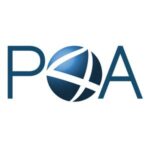 Partners4Access (P4A) is a global market access agency specialising in orphan drug, cell and gene therapy launch planning and execution. The P4A Let’s Talk Rare podcast is a go-to monthly listen of important medical, pharmaceutical and regulatory updates in the rare and orphan disease space.
Partners4Access (P4A) is a global market access agency specialising in orphan drug, cell and gene therapy launch planning and execution. The P4A Let’s Talk Rare podcast is a go-to monthly listen of important medical, pharmaceutical and regulatory updates in the rare and orphan disease space.
In September, we featured across a two-part episode alongside Sophie Schmitz, Managing Partner at P4A and Neil Bertelsen, Independent Consultant, on the role of patient involvement at all stages of drug development, approval and access and the possible implications without ‘giving voice’ to the patient perspective.
You can find both episodes here.
Pulse Infoframe Patient Advisory Board
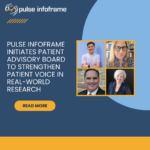 In October, Pulse Infoframe, a company that specialises in collecting real-world data and generating associated real-world evidence (RWE), launched a patient advisory board (PAB) to support its patient engagement and community partnership strategy as well as new product development.
In October, Pulse Infoframe, a company that specialises in collecting real-world data and generating associated real-world evidence (RWE), launched a patient advisory board (PAB) to support its patient engagement and community partnership strategy as well as new product development.
We were delighted to be invited to join the year-long initiative, together with the following:
- Jean Campbell, co-founder and board member of Professional Patient Advocates in Life Sciences and founder of JF Campbell Consultants;
- Mark Dant, chair of the board of directors at the EveryLife Foundation for Rare Diseases and the Volunteer Executive Director of the Ryan Foundation for children living with Mucopolysaccharidosis; and
- Dr. Stacey Feuer, director of the health psychology department at Duly Health Care and a rare disease advocate and speaker.
The PAB comes at a time when stakeholders in healthcare are increasingly turning to RWE to inform their decisions. Read more here.
World Federation of Hemophilia Gene Therapy Round Table
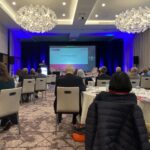 The World Federation of Hemophilia (WFH) is a global non-profit organisation dedicated to improving and sustaining care for people living with inherited bleeding disorders. In view of the development and recent approvals of first-generation gene therapy for haemophilia A and B, the WFH initiated a series of multi-stakeholder Gene Therapy Round Tables (GTRT) to better understand where guidance is needed for product safety and to develop initial consensus statements to inform policy.
The World Federation of Hemophilia (WFH) is a global non-profit organisation dedicated to improving and sustaining care for people living with inherited bleeding disorders. In view of the development and recent approvals of first-generation gene therapy for haemophilia A and B, the WFH initiated a series of multi-stakeholder Gene Therapy Round Tables (GTRT) to better understand where guidance is needed for product safety and to develop initial consensus statements to inform policy.
In November, we were invited to the fifth GTRT, which was held over two-days in Montreal, Canada. The meeting was attended by a select group of international delegates from across the scientific, medical, pharmaceutical, regulatory and patient communities, with featured talks on the latest clinical trial data, best practices in science communication, liver health, informed consent as well as overcoming challenges and addressing uncertainties surrounding the technology.
Check out the Twitter thread here for commentary from the round table.
Pfizer’s Global Haemophilia Patient Education Grant
 Patient education is a fundamental pillar of effective health advocacy and high-quality care. Ensuring timely access to and the equitable provision of tailored, developmentally appropriate and culturally sensitive education about haemophilia and its treatment is essential for promoting active participation in shared decision-making between those living with the condition and their care providers to improve health outcomes.
Patient education is a fundamental pillar of effective health advocacy and high-quality care. Ensuring timely access to and the equitable provision of tailored, developmentally appropriate and culturally sensitive education about haemophilia and its treatment is essential for promoting active participation in shared decision-making between those living with the condition and their care providers to improve health outcomes.
We’ve been collaborating closely with Pfizer on a new global grant initiative to help bridge the equity gap in therapeutic patient education for haemophilia, which launched in December. The grant encourages patient advocacy groups and other non-profit organisations (from all country income groups) to identify and overcome barriers to learning for people living with haemophilia, especially for less activated and marginalised members of the community. Underpinning the grant application is a needs-based, outcomes-driven framework to better understand the link between outputs and impact.
This is the first grant of its kind for Pfizer and we’re excited by the opportunity it presents to ultimately support more people living with haemophilia in making evidence-informed treatment choices to fit their clinical and lifestyle goals.
Find out more here.
Contact us
2023 is just around the corner. We’re always looking to partner with the right clients and organisations to voice and drive the rare disease patient agenda. Please get in touch with us for a chat via our contact page (you can refer to our privacy policy statement here).
You can also connect with us on Twitter, Instagram and LinkedIn.
On The Pulse
